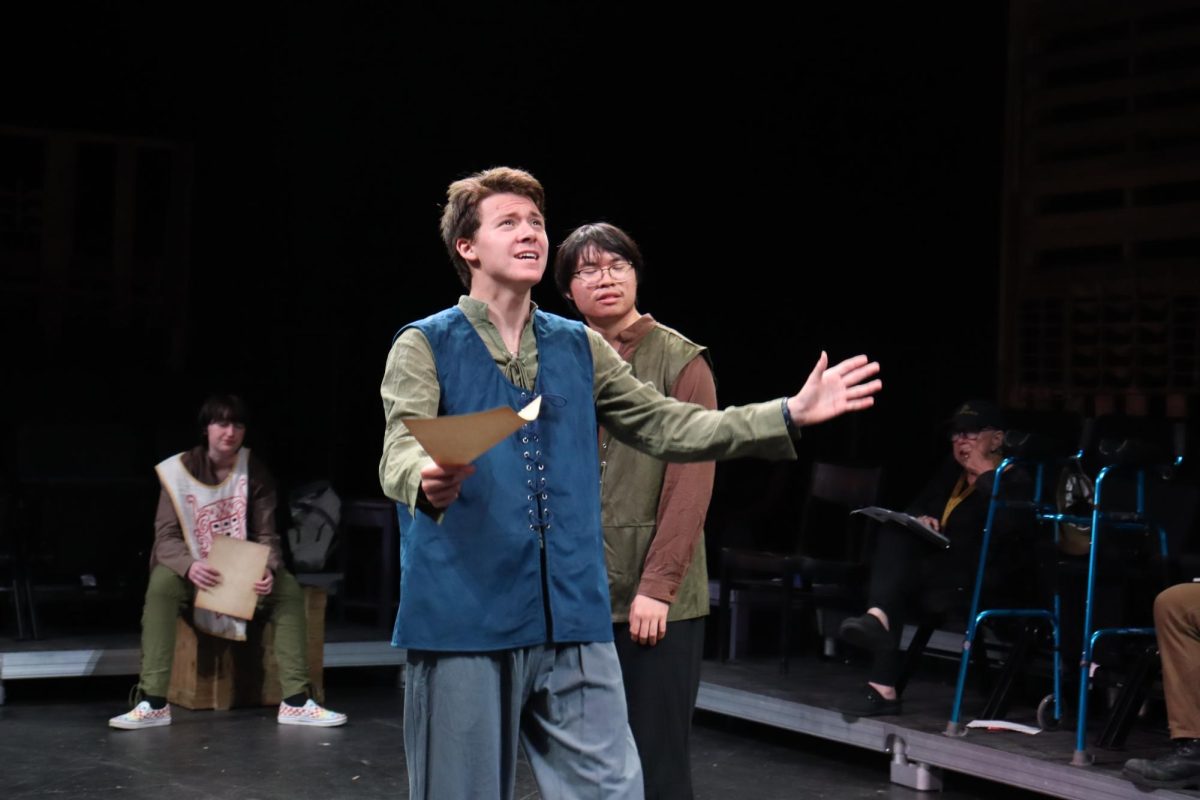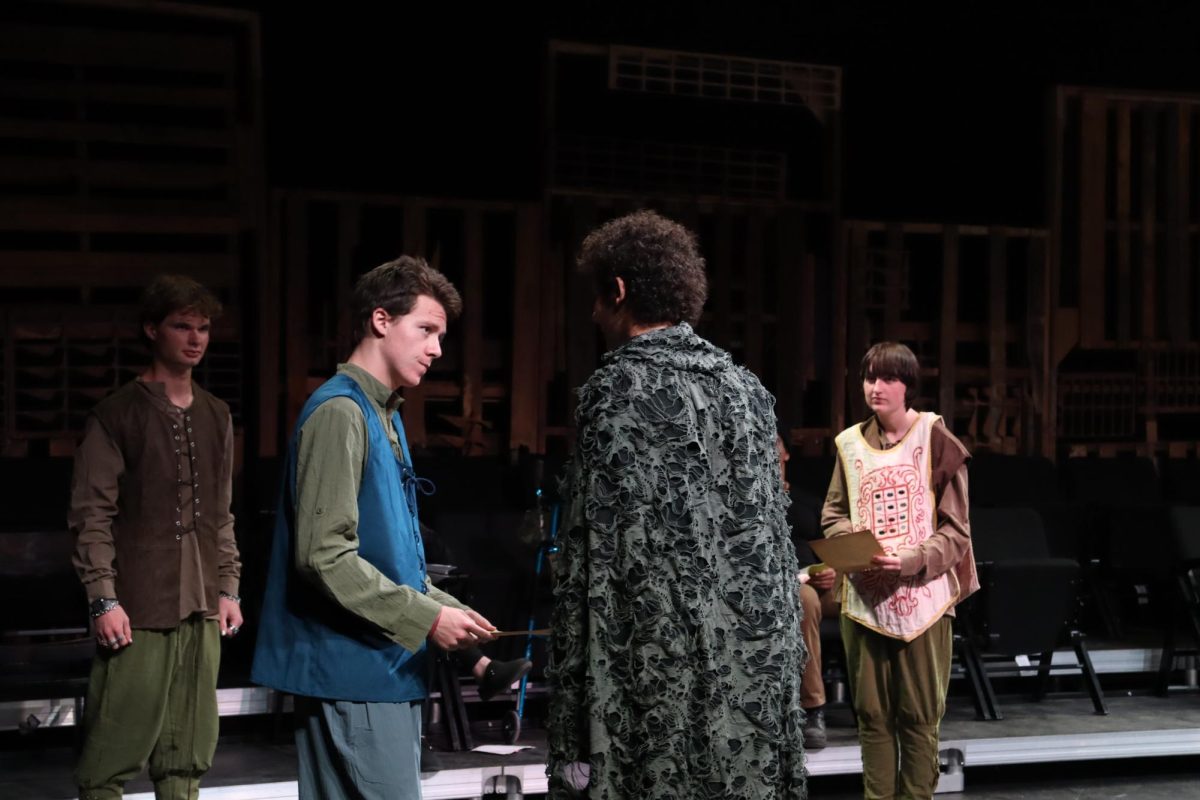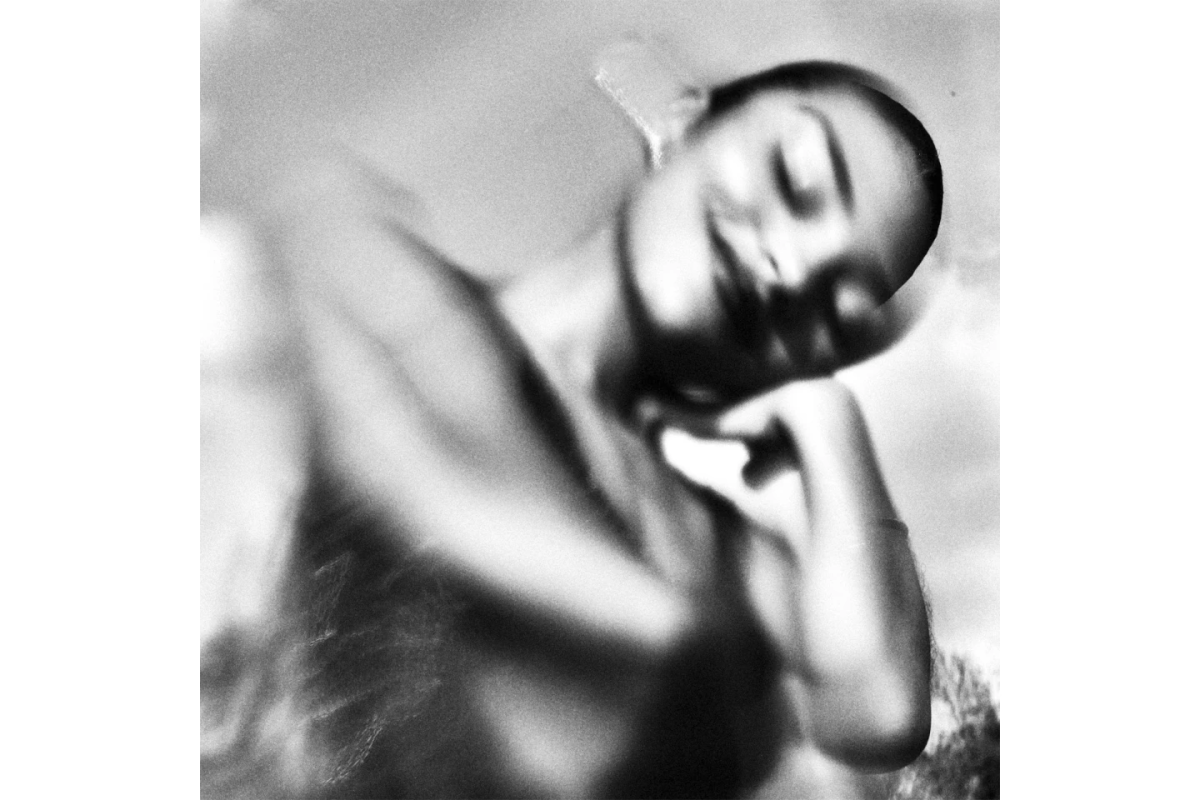“Our bodies become their souls made visible. What could they not do if, while in that godlike state, we were to tell them — the truth?”
This declaration pulses at the heart of Bill Cain’s “Equivocation,” a play that examines the burden and power of storytelling. Torrey Pines Players kicked off their 2024-25 season with this ambitious production, delivering seven performances over two weeks at the Performing Arts Center. Saturated with political tension and moral dilemma, the play weaves together historical events, metatheatrical devices and high stakes, challenging audiences with its complexity.
Yet, “Equivocation” opens with a deceptively simple question: “Why me?”
In the aftermath of the failed Gunpowder Plot of 1605 — a daring attempt to blow up Parliament — the crown scrambles to control one thing: the narrative. On behalf of King James I (Ethan Erstling (10)), Prime Minister Robert Cecil (Jonah Fagin (10)) commissions Shag (Eric Lee (12)), a fictionalized Shakespeare, to write a play about the “true history” of the plot and perform it with his company. As Shag and his actors investigate a story with the power to alter history, they find themselves at a crossroads: risk their lives to speak the truth, or tell the king’s version of events to survive.
Stage
Staying faithful to the playwright’s vision, TP Players staged the production using theater-in-the-round, building the set around the audience to create an immersive experience. This is the first time this technique has been used in the new PAC theater. Proximity to the unfolding plot added a sense of claustrophobia, reflecting the pressure Shag and his actors felt under Cecil’s scrutiny.
This choice becomes more deliberate in Act 2 during the trial of Jesuit priest Henry Garnet, a suspected conspirator in the Gunpowder Plot. The stage illuminates actors sitting among the audience, dissolving the separation of performer and spectator. In a turn of events, the audience goes from passive observers to complicit witnesses, accountable for the decisions unfolding on stage.
However, the staging was not without its flaws. The rectangular stage made the backstage visible and audible from nearly every seat. Pitter-patters of footsteps echoed from all around, occasionally disrupting the play’s illusion. These logistical challenges seemed unavoidable for the most part, given the theater’s setup.
Props, Set, Costume
The set, which period three Drama Production designed, managed to feel minimal and elaborate at the same time. Golden candles oozed 1700s ambiance and pieces of painted cardboard sprawled across the floor, resembling discarded writing. The wooden, fence-like structures encircling the audience heightened the claustrophobic tension and the execution platform worked effectively in its brief moments of use.
Personal favorite props included the swords, used in an epic duel, and the parchment scripts, which Shag’s actor Armin (Stanley McInnis (11)) humorously stressed over throughout the scenes. The costumes were effectively simple, with lace-up vests, lace-up pants and period details. They grounded the work in its historical setting without drawing attention from the acting.

Cast
The cast delivered strong performances, rising to the challenge of the intellectually demanding and lengthy production. More than half of the performers were debut actors, with several taking on multiple roles. Fagin’s commitment to Cecil’s limp and Erstling’s dedication to the king’s Scottish accent were small but key details essential to their portrayals.
The leading roles navigated dense scenes with an intense yet comfortable pace, flowing seamlessly between points of tension, while supporting roles added layers of humor and depth. Every actor’s contribution, no matter the size of the role, felt integral. Their renditions were not defined by perfection, but rather the raw emotions and humanity they conveyed through gestures, voices, expressions and projection. Unafraid to fear, fall or hurt, they breathed life into their characters.
So, what is equivocation?
Going into the play, all I knew about equivocation was that it rolled off the tongue nicely. By definition, it refers to using evasive or ambiguous language to conceal the truth. But in “Equivocation,” the word takes on a deeper urgency, one that continues to resonate in a world that has long struggled with candor.
A pivotal moment in the play occurs when Shag visits Garnet in prison, still stuck in a moral dilemma. Shag says, “I’m done telling the truth, teach me to equivocate.” For Garnet, however, equivocation is not about deception; it is about finding a way to “tell the truth in a difficult time.” And so Shag and his actors do just that. They put on a play for King James I: “Macbeth,” a tragedy about a different king whose monarchy, much like James I, is built on bloodshed.
At first glance, the production is a two-hour long jumble of disjointed ideas, with a confused and convoluted plot. But beneath the surface, it captures the essence of equivocation itself.









